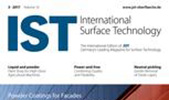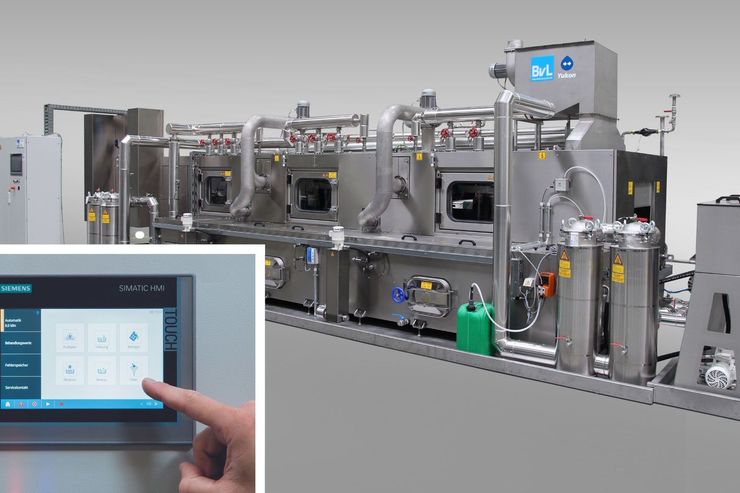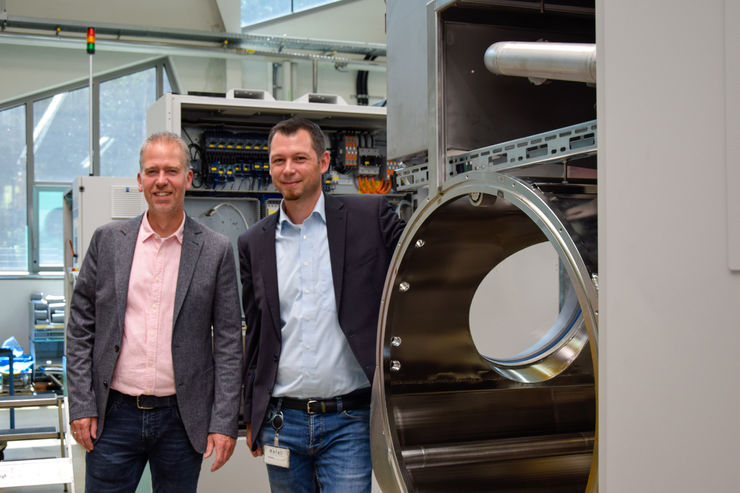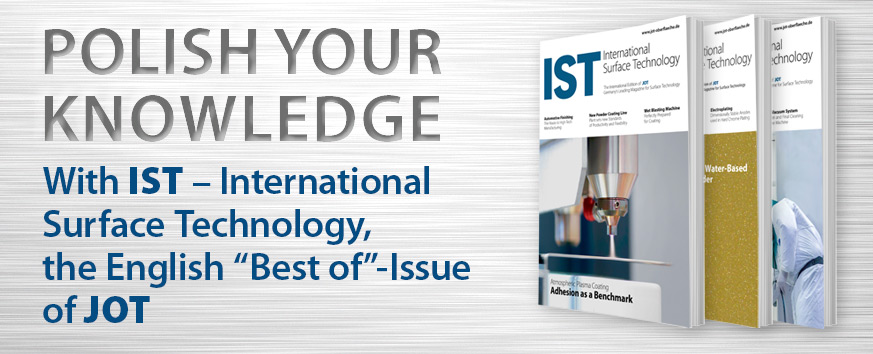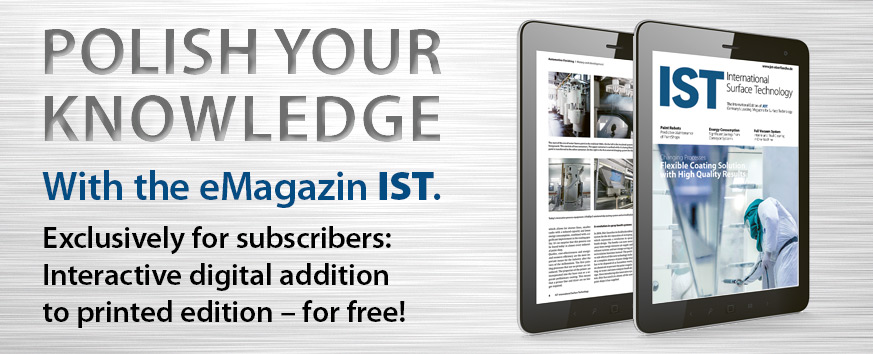Conscious use of resources plays a major role for BvL Oberflächentechnik in the design and construction of its cleaning plants and supplementary system components. The manufacturer cites the greatest possible insulation of system components such as pumps, filters and piping as an essential component for increased energy savings.
At BvL, the term "Smart Cleaning" refers to various measures designed to make the cleaning systems even more environmentally friendly. In this context, all of the manufacturer's cleaning systems have been equipped with Libelle Fluid Control as standard for years. With the aid of appropriate sensor technology, the bath quality is permanently measured so that less water and cleaner have to be used than would be the case if a bath were to be changed at regular intervals. With the Libelle Cleaner Control and the Libelle Oil Control, BvL also ensures that resources are used sparingly, since the constant measurement of the cleaner or oil concentration in the bath means that the bath is only ever changed at the necessary time. According to the supplier, the exhaust air management system developed by BvL reduces the volume of exhaust air and thus the largest energy consumer in a continuous cleaning system. For this purpose, a sensor measures the humidity in the drying zone. Only as much air is extracted as is necessary for the process. The BvL drying control regulates the drying time based on the actual humidity in the drying room. This results in significant time and energy savings, according to the supplier.
At BvL, the term "Smart Cleaning" refers to various measures designed to make the cleaning systems even more environmentally friendly. In this context, all of the manufacturer's cleaning systems have been equipped with Libelle Fluid Control as standard for years. With the aid of appropriate sensor technology, the bath quality is permanently measured so that less water and cleaner have to be used than would be the case if a bath were to be changed at regular intervals. With the Libelle Cleaner Control and the Libelle Oil Control, BvL also ensures that resources are used sparingly, since the constant measurement of the cleaner or oil concentration in the bath means that the bath is only ever changed at the necessary time. According to the supplier, the exhaust air management system developed by BvL reduces the volume of exhaust air and thus the largest energy consumer in a continuous cleaning system. For this purpose, a sensor measures the humidity in the drying zone. Only as much air is extracted as is necessary for the process. The BvL drying control regulates the drying time based on the actual humidity in the drying room. This results in significant time and energy savings, according to the supplier.
Autor(en): wi

